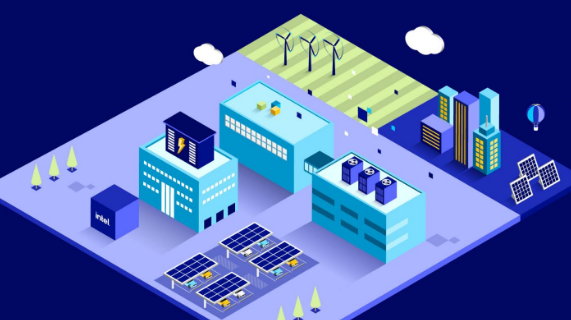
18 Apr 2023
Intel Claims to "Raise the Bar" on Reducing Scope 1 and 2 GHG Emissions
Intel claims its committed to “raise the bar on existing (GHG emissions) commitments, and setting a goal to achieve net-zero Scope 1 and Scope 2 emissions across our global operations by 2040.”
The statement comes in a recent blog entry by Keyvan Esfarjani, Intel's Chief Global Operations Officer. He writes, “lowering greenhouse gas emissions is one of the semiconductor industry’s most complicated challenges, due to the energy needed to make chips and the unique requirements of the manufacturing processes. This complexity is compounded as the semiconductor ecosystem must also expand globally to meet the growing demand for chips. Getting to net-zero requires identifying, developing and piloting novel green chemistry solutions, abatement tools, new equipment designs and facility systems, many of which do not exist today. As one of the world’s largest semiconductor companies doing research, design and manufacturing, Intel is deepening its long-standing collaboration across the ecosystem to achieve a future of more sustainable computing.”
Esfarjani outlines three key focus areas for Intel's efforts:
“We have a roadmap for reducing emissions across our manufacturing operations and office buildings. This includes investing in renewable electricity. As of the end of 2022, we exceeded 90% of our global renewable electricity usage.”
“We’re collaborating with the industry and academia to develop semiconductor processing alternatives and energy efficiencies across the value chain and to establish standard reporting metrics.
“We're increasing the energy efficiency and lowering the total carbon footprint of our products and platforms, which helps our customers achieve their sustainability goals. For instance, data center operators could see a 60% reduction in carbon dioxide emissions using 4th Gen Intel Xeon Scalable processors.”
He concluded his post by stating, “We are also developing ultra-efficient abatement equipment, using the latest capabilities in artificial intelligence, software systems, and energy efficiency to create technologies that limit and potentially eliminate the use of fossil fuels for our future factory designs.”
Follow us on social media:


.d57b427b.png&w=3840&q=75)

















